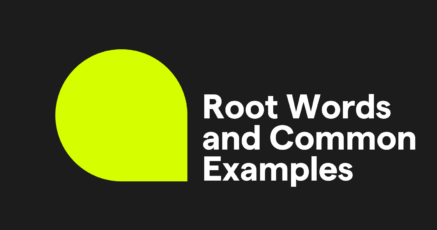 Test Grammar: Essential English Grammar to Ace Your Next TestYour palms are sweaty. Your feet are restless. Your mind is racing. It must be test time! Generally, most tests are unpleasant,...February 5, 2024
Test Grammar: Essential English Grammar to Ace Your Next TestYour palms are sweaty. Your feet are restless. Your mind is racing. It must be test time! Generally, most tests are unpleasant,...February 5, 2024 What Are Split Infinitives? Meaning and ExamplesThere are a few “rules” of grammar that aren’t actually rules or, at any rate, rules that people like grammarians and linguists...January 19, 2024
What Are Split Infinitives? Meaning and ExamplesThere are a few “rules” of grammar that aren’t actually rules or, at any rate, rules that people like grammarians and linguists...January 19, 2024 What Is a Homograph? Definition and ExamplesThe English language is riddled with homographs—words that are spelled the same way but differ in meaning and/or pronunciation or...December 18, 2023
What Is a Homograph? Definition and ExamplesThe English language is riddled with homographs—words that are spelled the same way but differ in meaning and/or pronunciation or...December 18, 2023 What Is the Predicate Nominative in Grammar?The predicate nominative is a confusing topic in English, even for lifelong speakers. So what is a predicate nominative? Below we...November 27, 2023
What Is the Predicate Nominative in Grammar?The predicate nominative is a confusing topic in English, even for lifelong speakers. So what is a predicate nominative? Below we...November 27, 2023 Participial Phrases: How They Work, With ExamplesAdding extra description to a noun, a participial phrase is a great way to explain details without interrupting the rest of a...November 14, 2023
Participial Phrases: How They Work, With ExamplesAdding extra description to a noun, a participial phrase is a great way to explain details without interrupting the rest of a...November 14, 2023 What Is a Compound Subject in Grammar? Meaning and ExamplesA subject is one of the two main grammatical parts of a sentence or clause (the other is the predicate). The subject is the noun,...October 31, 2023
What Is a Compound Subject in Grammar? Meaning and ExamplesA subject is one of the two main grammatical parts of a sentence or clause (the other is the predicate). The subject is the noun,...October 31, 2023 Root Words: Definition, Lists, and ExamplesKey takeaways: Root words are the simplest form of a word, from which other words can be created by adding letters or parts at...October 14, 2023
Root Words: Definition, Lists, and ExamplesKey takeaways: Root words are the simplest form of a word, from which other words can be created by adding letters or parts at...October 14, 2023 What Does “Connotation” Mean? Definition and ExamplesConnotation is what a word means, but it is not its definition. Trust us, it isn’t as confusing as it sounds. Think about the...September 13, 2023
What Does “Connotation” Mean? Definition and ExamplesConnotation is what a word means, but it is not its definition. Trust us, it isn’t as confusing as it sounds. Think about the...September 13, 2023 What Are Determiners? Definition and ExamplesDeterminers are words that come before nouns and specify something about their quantity, definiteness, or ownership. Another name...August 17, 2023
What Are Determiners? Definition and ExamplesDeterminers are words that come before nouns and specify something about their quantity, definiteness, or ownership. Another name...August 17, 2023 How Do You Spell “Receipts”? Tips for Getting It RightReceipts can be a tricky word to spell. You might find yourself wondering, “Is it receipts or reciepts?” In this article, we...August 11, 2023
How Do You Spell “Receipts”? Tips for Getting It RightReceipts can be a tricky word to spell. You might find yourself wondering, “Is it receipts or reciepts?” In this article, we...August 11, 2023